-
About
- About Listly
- Community & Support
- Howto
- Chrome Extension
- Bookmarklet
- WordPress Plugin
- Listly Premium
- Privacy
- Terms
- DMCA Copyright
- © 2010-2025 Boomy Labs


 Anne Megerian
Anne Megerian
Listly by Anne Megerian
Are you up to your ears in academia? Have your studies slammed you flat, or are you just burned out on books? If you feel like you haven't got a prayer, then what you need is a bit of divine intervention! (Just remember to keep studying... and don't forget to stay hydrated, ok?)
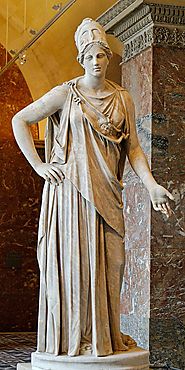
Athena is an ancient Greek goddess, said to have sprung fully grown from the head of her father, Zeus. What a headache! Why not petition her to avoid similar headaches as those deadlines pile up? Click here for exhaustive information on her role in mythology and lore.
(Image is of the Mattei Athena, which is currently held in the Louvre in Paris, France. Picture is public domain)
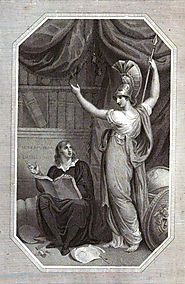
The Roman deity Minerva was assigned many of Athena's characteristics, and the two goddesses have come to be seen as practically interchangeable in modern times. The Romans did downplay her more martial aspects, while highlighting her association with learning and instead preferred to focus on her role as a supporter of technology and craftsmanship. Minerva's gentler nature may come in handy to prevent violent outbursts toward innocent technology and textbooks.
(Image is of "Minerva Directing Study" by an unknown engraver, 1816. Public Domain.)
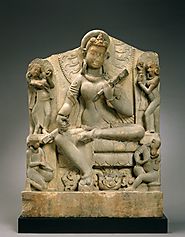
The goddess Saraswati is held in high esteem by Hindus, Buddhists, and Jains alike, in India and across much of Asia. She is a wisdom goddess and patroness of learning and the arts. In many countries, she is invoked at the commencement of a child's formal education. Click here for a link to more information on her modern worship in Hinduism.
(Image is 6th century CE Indian statue of Saraswati, currently housed in the Houston Museum of Fine Arts. Picture is public domain.)
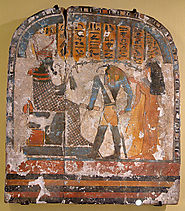
Thoth is an Egyptian deity associated with the moon. More importantly, he was also said to be the inventor of writing and a patron of scribes. Thoth is the god responsible for recording the deeds of the living, and weighing their hearts upon their arrival into the Afterlife, in order to decide the fate of their soul. It might be wise to ask him for help, lest you find your own heart weighed down with the stress and anxiety of academia. Click here for more information regarding his ancient worship and lore.
(Image: Ancient Egyptian depiction of Thoth, currently in the Louvre)
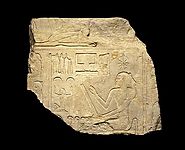
Seshat is the consort of Thoth, and shared with him the domains of writing and record-keeping. Furthermore, she was said to be a patroness of books and astronomy. Her expertise in determining the movements of the heavens is symbolized by the eight pointed star above her head. Why not get in her good graces to avoid running afoul of deadlines? Click here for more information on her history and role in Ancient Egyptian myth and lore.
(Image: Ancient Egyptian carving depicting Seshat, ca.1919-1875 BCE, currently held in the Brooklyn Museum.)
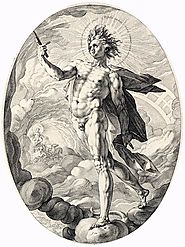
Apollo is a Graeco-Roman deity with rulership over many domains. He came to be associated with prophecy and divine law, and is held forth as the rational and cultured foil to his divine brother Dionysus, who was a deity of madness and wild frenzy. If you are looking to succeed academically, reach out to him and not his brother! Click here for more information.
(Image is a 1588 engraving by Hendrick Goltzius, currently held by the Rijksmuseum in Amsterdam.)

The Muses are Greek deities of inspiration, with patronage over varied intellectual and practical domains. There are usually said to be nine of them, though this does vary according to the author, as do the domains attributed to the sisters and the names they are given. If you need an actual "muse" for that project, you won't go amiss if you call on the real deal! Click here for more information on these goddesses and their worship in ancient times.
(Image is of a Roman Sarcophagus carved with figures of the muses, ca.2nd century CE. Currently housed in the Louvre. Image is public domain.)
